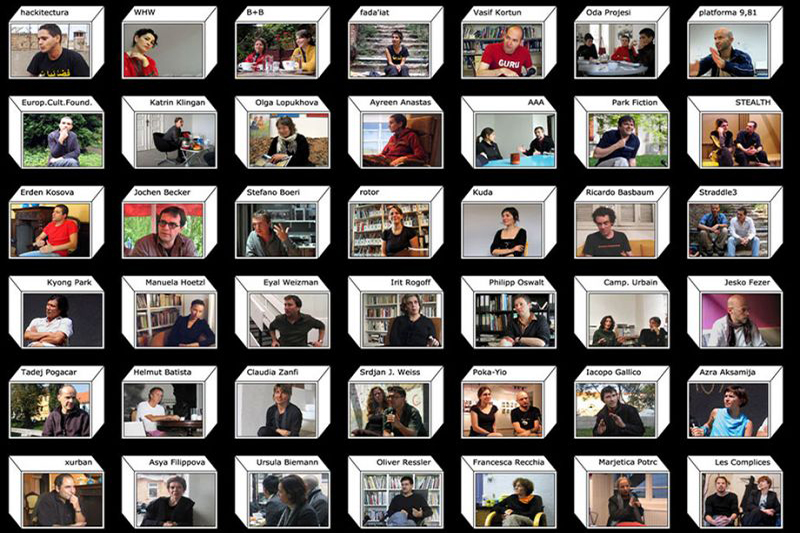- Event
- Moscow
- 13-16.06.2006
- NETWORKED CULTURES
‘Hierarchy and Power in the History of Civilizations’
Fourth International Conference
Russian Academy of Sciences
Moscow
Panel VIII: Networked Cultures – Negotiating Cultural Difference in Contested Spaces
Speakers: David Dibosa, Roxanne Easley, Cordula Gdaniec, Petra Gemeinböck, Andreas Kofler, Helge Mooshammer, Peter Mörtenböck, Lee Rodney
Panel convenor: Peter Mörtenböck (Goldsmiths, London)
This panel aims to discuss the dynamics and potentials of newly emerging socio-political networkstructures and the ways in which they re-conceptualise socio-political organisation through innovative forms of spatial practice. It looks at contemporary spatial practices characterised by a dislocation and dispersion of contributors, participants and spectators, by processes of fragmentation and multiplication, by a shifting of perspectives from dominant centralities to networked peripheries, clandestine economies and virtual sites. In doing so, this panel intends to question the ways in which the local is reinstalled as a new sphere of activities which can only be understood through its network of relationships with other localities.
Albeit an increasingly fictitious construct, urban space continues to be a central site of negotiation between conflicting cultural histories, narratives and values in Europe and between Europe and other world regions. Call centres, for instance, create the illusion of speaking to someone geographically close to the location of the client, they create a sense of ‘hereness’, whereas for economic reasons more and more call centres of the Western world are relocated to Asia. Territorial boundaries are both being undermined and upheld as is the case in the recently proposed building of Austrian prisons in Rumania or the British border controls on French territory. Both the contested geography and the contested imaginary described in these and in many other instances are indicative of a rapidly growing fragmentation and attempted re-stabilisation of space formed in and by the projection of dominant cultural narratives. These power moves challenge our traditional understanding of cities as sites of actual exchange: The exchange between communities is not bound to a material site any longer, it rather develops into a site of migratory co-existence and cross-cultural networking. What is at stake in these newly emerging communities of fleeting identifications and chance encounters is a new way of thinking through the problematics of an illusory ‘hereness’ in relation to an illusory ‘thereness’.
A crucial question addressed here is the extent to which we actually participate in these complexities of socio-political organisation and how we relate to concepts and images produced by culturally specific groups to which we belong or to which we do not belong. As participation can no longer be restricted to instruments such as memberships, polls and questionnaires, we have to look at new modes in which collectivities (contact zones, nodes of intensities and communities) are developed. How do new forms of communication and representation, in particular virtual-spatial ones, change the social spaces where different cultures meet? How do public fantasies interact with the actual living conditions of citizens? How do constructions of an illusory ‘hereness’ relate to constructions of a similarly illusory ‘thereness? Contributions to this panel consider different spaces of contested nature: spaces which exhibit or call for the potentiality of new forms of cohabitation and cross-cultural fertilisation. The panel investigates how such networked cultures reflect and generate new epistemological models and intends to critically assess their potential for cultural dialogue.
